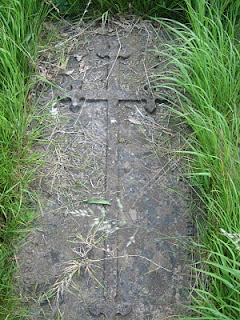A fool's road

Luke 9:18-24
One day when Jesus was praying alone in the presence of his disciples he put this question to them, ‘Who do the crowds say I am?’ And they answered, ‘John the Baptist; others Elijah; and others say one of the ancient prophets come back to life.’ ‘But you,’ he said ‘who do you say I am?’ It was Peter who spoke up. ‘The Christ of God’ he said. But he gave them strict orders not to tell anyone anything about this.
‘The Son of Man’ he said ‘is destined to suffer grievously, to be rejected by the elders and chief priests and scribes and to be put to death, and to be raised up on the third day.’
Then to all he said, ‘If anyone wants to be a follower of mine, let him renounce himself and take up his cross every day and follow me. For anyone who wants to save his life will lose it; but anyone who loses his life for my sake, that man will save it.’
‘Who do the crowds say I am’
The crowd has no name; there is no identity, no individual, no unique soul to recognise the voice that is calling them. So they make it up. People in a crowd, willing to stay in the crowd, become part of the crowd, have no fixed ideas because then they may become the odd one out – and that would never do. The survival of a crowd depends on its becoming one voice, one entity.
The crowd, finding itself listening to his words, will be wondering who Jesus is, will be making tentative suggestions, as the apostles say – safe, scriptural, hopeful suggestions; starting as whispers just in case the suggestion is too outrageous – then rising in confidence. But the crowd’s suggestions can only be what is most popular, most reasonable, most likely. The crowd wants the Days of the Old Prophets back, wants the Romans to fall, wants Jerusalem to be theirs again. The crowd, gathering itself from many memories and thoughts will never be right about who Jesus is – it is too radical and too original a thought.
There may be people in the crowd who think like Peter, that this man is the One, the Messiah. But the thought of being laughed at, rebuked, embarrassed - that is not a thing to happen in a crowd. And even if there were a few who believed – these are the ones who will come nearer to the feet of Jesus, who become followers, disciples.
There are many benefits to being a crowd, the idea of community is a strong one even within the faith; there is a belonging that reinforces our beliefs but also has much to do with safety and security. But like boats moored up in the harbour, or horses in the stable, or dolphins in a Seaworld aquarium, being safe and secure will not always make us happy; being safe and secure is not always where we are supposed to be.
‘If anyone wants to be a follower of mine’
Jesus does not play it safe; and has know from the beginning that there is no safe place; there has been none in his life – from the birth in a borrowed cave to the hand to mouth existence of a peasant family; and now the wandering of a itinerant prophet with no place to rest his head. He has deliberately, perhaps, allowed himself no place called home. His home is his relationship with those he loves; those that become disciples, friends and later brothers and sisters. He has kept himself on the edge; but now he has these friends and followers and, if he is going to be true to them they need to know that he is not bringing back the Good Old Days – they need to know what they are letting themselves in for.
And it seems almost cruel (although who else would say it?) to allow Peter to bravely speak the words out loud, to recognise the Christ that the others have hidden in their hearts. 'Never quite right' Peter will have never fitted into the crowd - too likely to just say what he sees, with the foolish confidence that this must be the truth. This truth may set the disciples free but it will not be a freedom that they will all want to have.
To be free in Christ is making the choice to leave the crowd; to move outside the harbour; to push the stable door open; to leave behind the hopes and dreams; the accepted truths; the daily expectancies that make our lives safe and secure. Having our arms full of our own needs and security blankets means that we cannot hold the hand of those who need us; cannot catch those who falter; cannot carry those who fall.
It is the logic of a dreamer that if we each cared for the other – we would all be cared for. A radical, unworldly logic that the crowd believes will never happen. And maybe our cross is the weight of the world that cannot believe in these dreams and our mission is to follow the one who dreams them.
wordinthehand2010



Comments